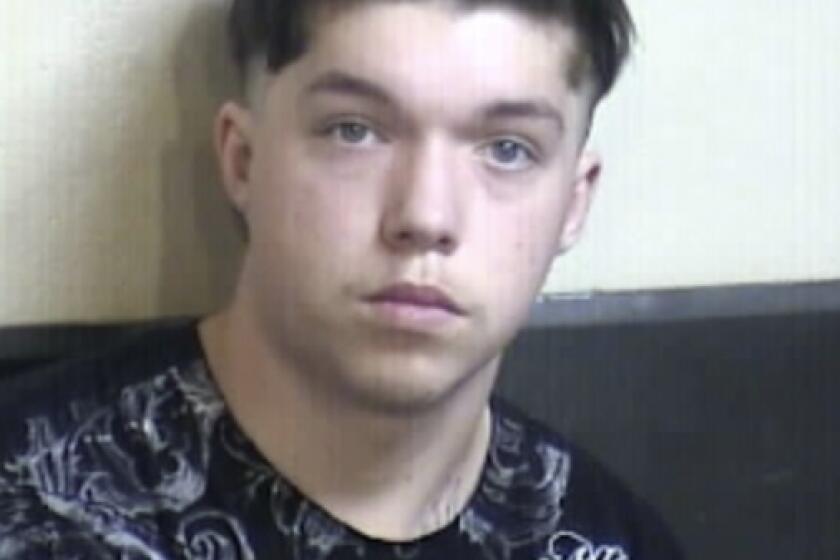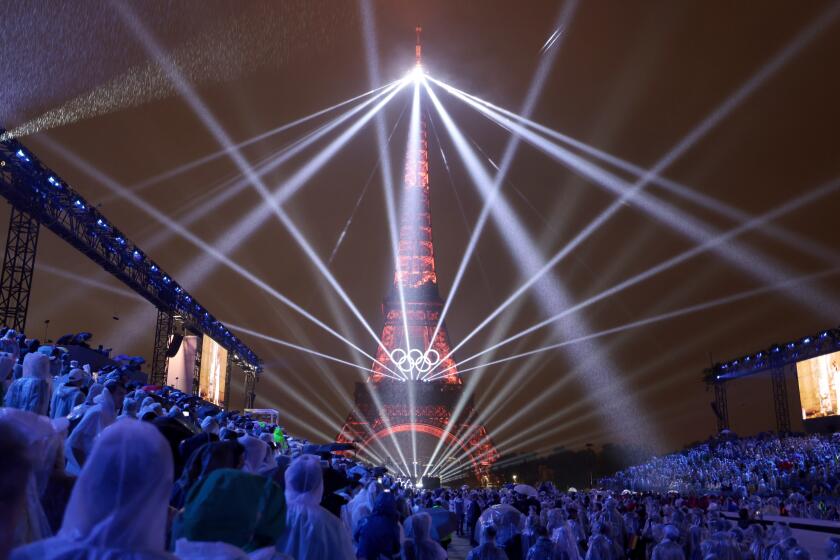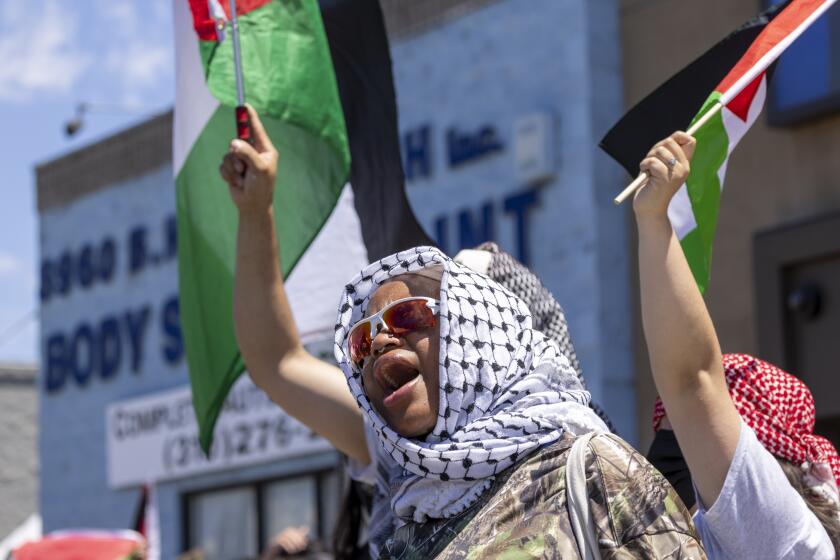Gay youths more likely to report trouble in foster care, study finds
Gay foster youths are twice as likely to report being treated poorly by the foster care system than their straight counterparts, according to a new study of Los Angeles County’s foster care system.
They have more foster care placements, are more likely to be living in a group home and are three times more likely than straight youths to have been hospitalized for emotional reasons at some point in their lives.
They are also highly overrepresented in the county system, according to a study released Wednesday by UCLA’s Williams Institute, which studies LGBT demographics, and Holarchy Consulting.
Nearly 1 in 5 L..A. County foster youths identify as lesbian, gay, bisexual, transgender or questioning their sexuality — twice as many as are believed to be in the general population.
“People refer to it as the ‘dirty little secret’ that there are so many LGBTQ kids in foster care, but nobody’s been able to document it,” said Lorri L. Jean, chief executive of the Los Angeles LGBT Center, which commissioned the study.
“We need to know who these kids are because only if we know who they are can we help them,” she said.
In any given month, the Los Angeles County Department of Children and Family Services has about 7,400 youths between the ages of 12 and 21 in out-of-home care, according to the study. Of those, about 1,400 identify as LGBTQ.
The study, funded by a federal grant, is the first of its kind quantifying sexual orientation and gender identity of youths in any foster system, its authors say.
Despite their large numbers in the foster care system, LGBTQ youths have been “relatively invisible,” the study said. Many do not feel safe telling their foster families or social workers about having same-sex attractions or questioning their gender identity.
Often, social workers wait for children to come out to them instead of inquiring because they don’t know how to ask or are trying to be respectful of the child’s privacy, experts say.
The Los Angeles LGBT Center has conducted training for social workers and foster parents about how to work with gay youths, Jean said. Some have resisted.
There have been some social workers who were angry about the training, sitting with arms crossed and saying things like, “I’m only here because I have to be here, but it’s against my religion,” Jean said.
“What we say is … you’re required to make sure all youth are treated well,” Jean said.
Many homeless youths who come to the center have run away from the foster care system or have been kicked out by their foster families because they are gay, bisexual or transgender, she said.
The state and county prohibit foster parents from discriminating against youths based on, among other things, sexual orientation or gender identity, said Leslie Starr Heimov, executive director of the Children’s Law Center of California, the court-appointed firm representing foster children.
About 15 years ago, advocates created a countywide Task Force to End Homophobia in Foster Care, and because of that the department changed forms that then listed a child’s sexual orientation in the same category as bed wetting and other behavioral issues, Heimov said.
“We have seen decreases in overt homophobia in the foster care system, but that doesn’t mean it’s not subtly still present,” Heimov said. One recent case involved a child who was adopted and kicked out after her parents learned she was a lesbian.
The Williams Institute study noted that most of the LGBTQ foster youths in L.A. County were, like their straight counterparts, racial minorities. The study found that 83% of LGBTQ youths in foster care were Latino or black.
Bianca Wilson, a Williams Institute researcher and author of the study, said many of these youths can face added discrimination for “being both sexual minorities and ethnic and racial minorities.”
Giovanni Fernandez, a former foster child who is gay, said he hoped the study would let LGBTQ youths know that they are not alone.
When Fernandez, who is now 38, came out to his foster mother in Pico Rivera as a teenager, he said, she made him spend holidays alone in his room because she didn’t want his “gay germs” affecting her family members. When he came out to his social worker, she changed the subject. He became depressed, dropped out of high school and left the system.
“I just didn’t know if there were others like me,” said Fernandez, who is studying to become a social worker. “When you feel like you’re the only one, it’s a lonely place to be.”
Twitter: @haileybranson
More to Read
Sign up for Essential California
The most important California stories and recommendations in your inbox every morning.
You may occasionally receive promotional content from the Los Angeles Times.






